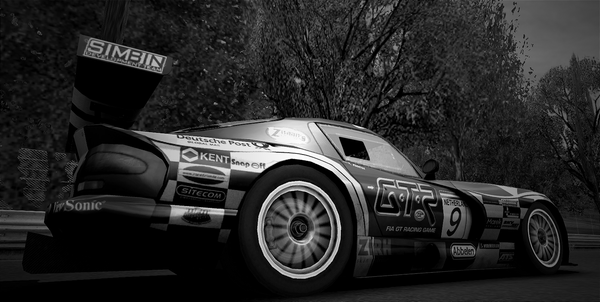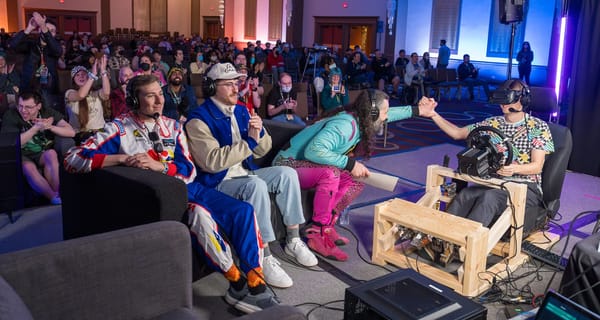Returning to Postmodernism: Reflecting on "Split 22"
Did these kids really "destroy" sim racing as the clickbait title from Boosted Media likes to claim when they broke the gentleman's agreement?
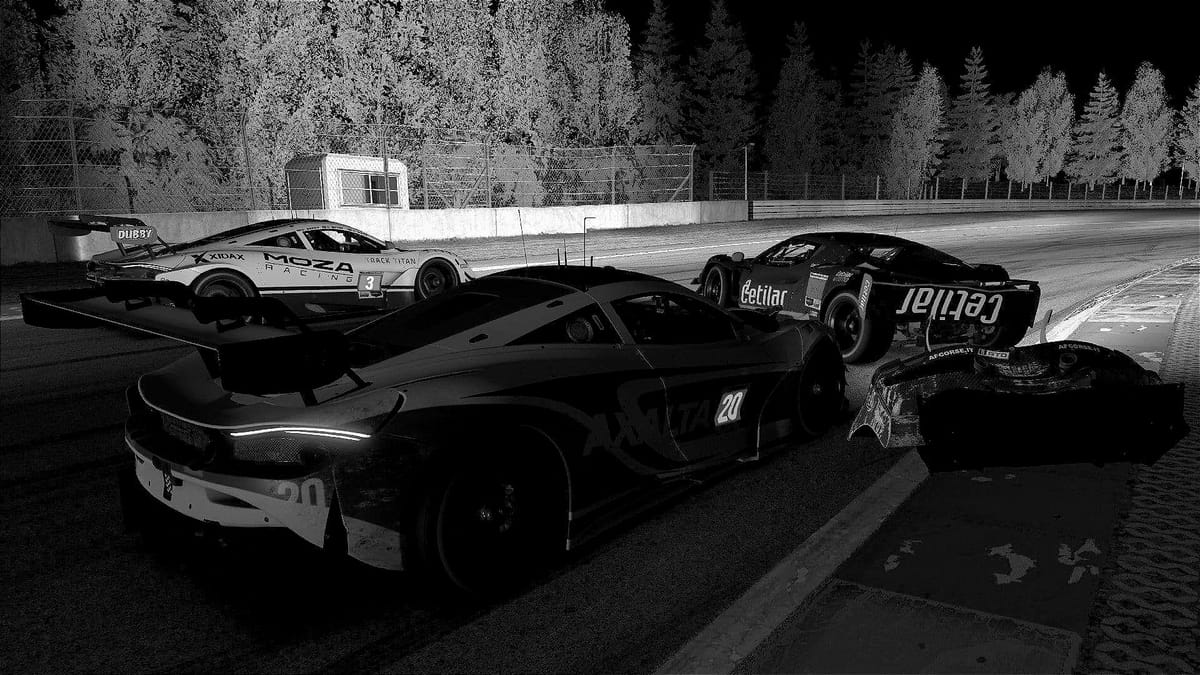
The world of racing games often feels so far removed from the reality that it takes almost all of it's inspiration from. With the exception of anti-gravity racing titles like F-Zero or Wipeout and various cartoony kart racers that have been made since Mario Kart got that sub-genre off the ground more than 30 years ago, racing games sell themselves as a pocket of an idealized reality that can only exist in video games. They are an escape, and an opportunity to do something that, as a result of capitalism and the decay of neo-liberalism leading into fascism, increasingly few people will get to do even at the most grassroots of levels. The opportunities to rise through the ranks on pure merit has shrunk to a statistical impossibility outside of the Road to Indy where champions receive a scholarship ensuring they can continue, whilst others increasingly rise through the ranks through sheer force of their dollar or their name.
That meritocracy and belief in that modernist condition still exists in racing, because it's believed to exist in the virtual world. It exists in esports at a grander scale: where the best still rise to the top and battle it out in search of the truth that they are truly the best at the craft they've chosen to pursue. There is still a monetary barrier that does exist, especially when it comes to virtual racing, but to get beyond that and give yourself an opportunity to prove yourself against the titans in the medium is a part of the beauty of esports and competitive trading card games. On any given day of the week, you can rub shoulders with giants and play or race against the Parker Whites and Gabirel Nassifs of the world with everyone accepting the gentleman's agreement to play the game the way it's meant to be played. Or at least, that's how it's expected to go.
In all video games with an online multiplayer element, there will always be players that take advantage of those following that gentleman's agreement. How they do that isn't always the same, but usually falls to the two ideas of cheating to their benefit or griefing other players to completely destroy their ability to play the game. Particularly in MOBAs, First-Person Shooters, and Racing Games, both of these are incredibly possible and we have all experienced it one way or another in our travels and been increasingly upset and frustrated by it. The frustration that comes from it has seemingly increased as time has progressed, as we have all collectively aged, and the time we have to do this hobby we all share becomes more precious in lieu of the capitalist struggle.

But what happens when that agreement gets broken at the highest level? What happens when the very best in the medium decide, effectively by birthright, that they are above everyone around them and think they can get away with cheating and go where others fear to tread? What happens when someone that exists in the believed modernist struggle for the truth that happens in, say, a 24 Hour Endurance Race, then decides "to hell with it" after something that happened to them in the event? What if it wasn't even a person? What if the means to play the game falls apart with no ability to fix what's now broken? What if the unthinkable happens and hardware fails at the user level mid-race? How are we suppose to react if such things happen, and how should that change depending on the seriousness of the event?
This is what I've been thinking about in the wake of Split 22. To keep it brief: in this one running of iRacing's Spa 24 Hour endurance race in July, there was griefing by one entry that affected the overall outcome of the race and the fortunes of a majority of those involved. Blocking the way and acting as a rolling roadblock, shoving other cars off the track, that kind of stuff. Griefing isn't uncommon in iRacing, it happens every day on the service with countless reports being filed for such antics every day. Is this the most extreme case of griefing I've seen on the service? It's hard to think of anything that comes close sure, but was it really worth the outcry from influencers in the space, moving the needle in public opinion on social media, forcing publications in the space to report on it, and putting iRacing officials into the unprecedented position to publicly announce the indefinite suspension of the drivers that took part in the griefing? Did these kids, who are no where close to being professional racing drivers, really "destroy" sim racing as the clickbait title from Boosted Media likes to claim when they broke the gentleman's agreement? Since when did griefing matter more than cheating in the grand scheme of things?
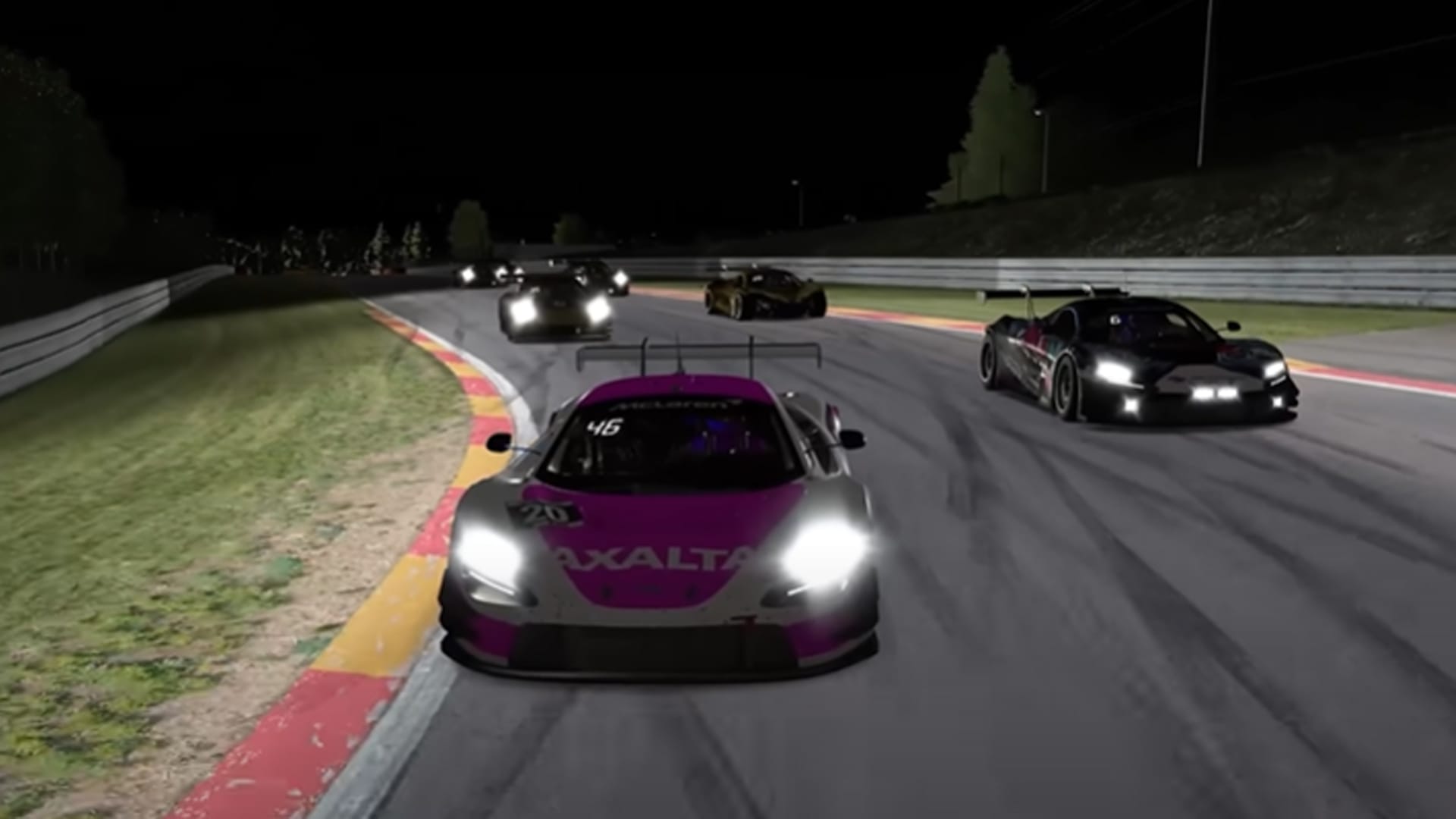
iRacing did not go out of their way to publically announce penalties and the disqualification that took place after Ferrari's esports outfit cheated their way out of a crash into a tire barrier. The driver shut down their computer and iRacing, prompting the server to teleport the car back to the pit lane without consequence. That entry would then go on to win the iRacing Daytona 24 Hour on track, lapping the field, before being stripped of their victory in a quiet manner with the results changed post-race with zero announcement. During Split 1 of the 2023 iRacing Daytona 24 Hour, the Williams eSports entry in the top class was spotted corner cutting on the banked part of the track en route to qualifying on pole position and would go on to win that running of the race. The only consequence from this was a short-term ban for driver Alxander Spetz for being the one to do the exploit with the overall entry receiving no admonishment. In the same race Williams eSports also had entries in the slower classes, with one of the team cars deliberately blocking rival cars from catching and battling their teammate for position. This is griefing and race manipulation like what happened in Split 22, but done purely out of a conscious spite for your competitors and a demand to succeed at any cost rather than the mere temper tantrum that took place in Split 22.
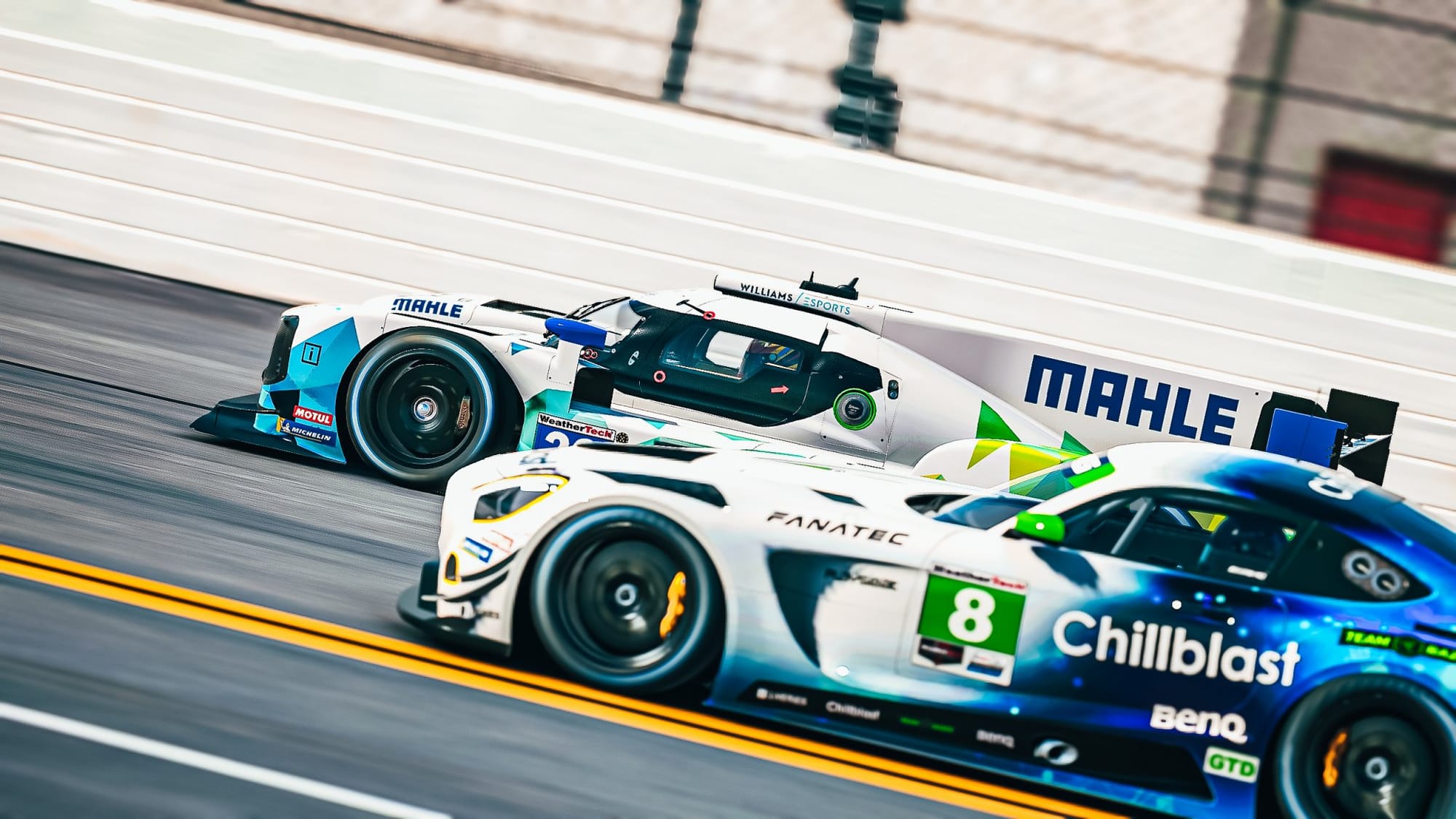
A month before Split 22, Team Redline was disqualified from Split 1 of the Nürburgring 24 Hour. All three of their entries aborted back to the pit lane at the start of the race, changed over to a setup that, under normal circumstances, is illegal within the technical regulations pre-race. Due to the game not doing the same checks after the race has begun, each of their entries was able to race. Due to a discrepancy in tire height between the dry and the wet compounds of tires, this would allow Team Redline to be below the minimum ride height at a time when this should be impossible if the team was playing by the rules and give them an illegal advantage. The drivers with Team Redline made zero efforts to hide the actual act of cheating which quickly made the rounds on social media which gave the impression, that by the virtue of driving for the biggest professional team in the space and getting to work with and be friends with Max Verstappen, that they could do no wrong. However, in an unprecedented move, iRacing Chief Official Nim Cross came out of the woodwork, read the riot act to everyone in the server, and removed Team Redline from that running of the Nürburgring 24 Hour. The gentleman's agreement wasn't just broken, it was shattered. But the consequences from these two events were fully insular to the individual event, where as the kids involved in Split 22 don't get that privilege.
There is a distinction between the attitudes of Split 1, commonly known as Top Split, and Split 22 that exists across virtual racing. Top Split in these special event races is the home of the best virtual racing drivers and teams in the world. Multiple times each year, they get their Super Bowl that everyone else also gets to participate in via the lower splits with all entries allocated against similarly rated entries based on the game's equivalent to a ELO system. For these teams, the Team Redline and Williams eSports of the world, even though there is no actual prize pool for winning these events, what matters is that they win Top Split period. To win Top Split is to gain fame, adulation, and a lot of eyeballs on your team and it's sponsors. To win, is to justify the money sink and tax-haven that racing esports teams are.
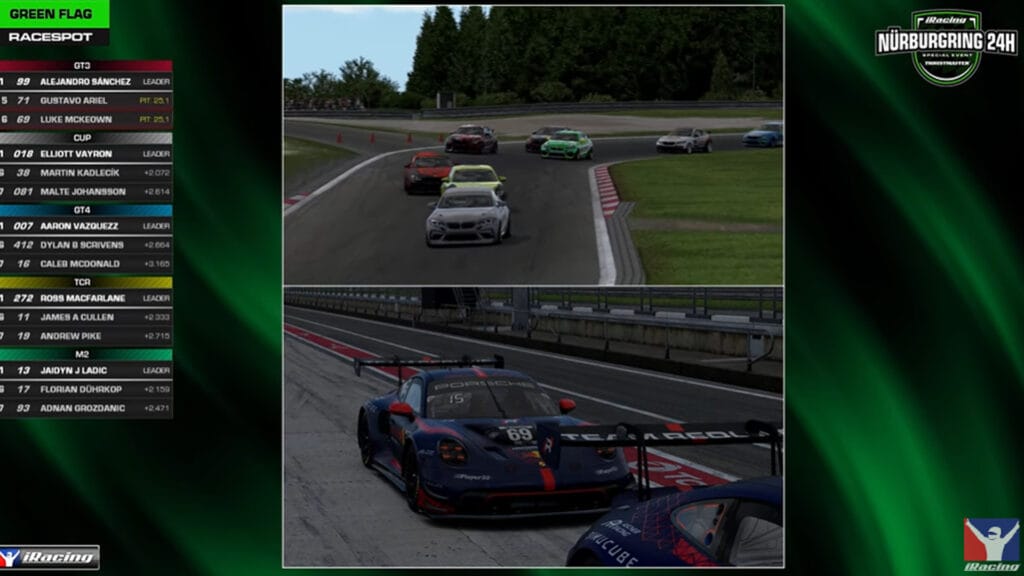
But for the drivers, what they're racing for is the chance to survive the biggest pressure cooker virtual racing has to offer. These drivers aren't just under one microscope, they're under multiple microscopes one focusing through the other, as they try and chase the ultimate modernist goal and prize in their space. They are racing and battling to seek the truth that they are worthy to keep going with this venture, while existing in the most precarious of situations if one thing goes wrong or you go against orders. If it does goes wrong, there is an assembly line of similarly talented kids ready to take their place on these teams, and the cycle begins anew in these Top Split special events without the drivers understanding they are being exploited for their labor. These drivers get paid peanuts and are functionally independent contractors, where the empathetic nature of being a valued member of a team is a mere suggestion. It can be understood as the most cynical form of modernism that's out there, where the truth that everyone is building up towards is a house of cards with no positive future to rebuild when it all inevitably collapses for those building it.
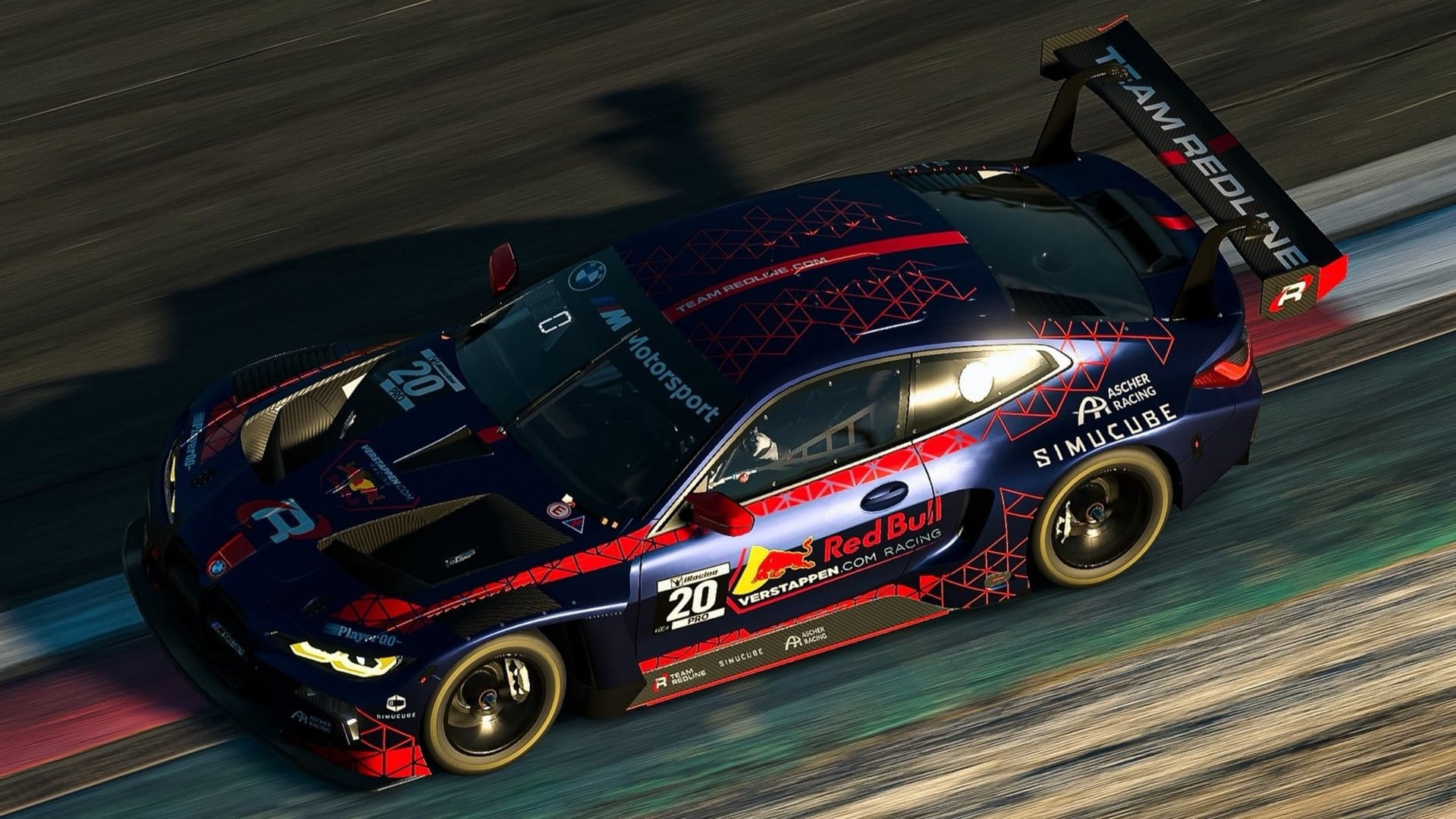
You move to the lower splits, the vibe and the philosophy changes. Yes, everyone still wants to race for the win and do as good as they can, but there is an acceptance that shit can and will happen outside of your control and that you are there to have fun. Everyone has accepted that over 24 hours, mistakes and crashes can and will happen and you may have extended periods in the pit lane for repairs. Everyone who has done these races has a testimonial for one that fell apart super early, one where they got griefed and intentionally wrecked, and another race where they were in with a chance at a win in the dying hours of a race they will carry with them forever. But, there is still this understanding of the insular nature of the event itself. After the chequered flag waves, things go on and normal life invariably resumes after the escape from reality that just took place. The prize for doing the race is that you have fun with your peers. That understanding that there is no peak and truth that one is truly racing for and the acceptance of how fast any effort that gets put in can be wiped out, maliciously or otherwise, brought fourth the reality to me about racing in the esports space: this isn't modernist at all, and acting like it is will always cause more harm than good. That racing in the virtual world is about as postmodern as it possibly can get.
While there is no true hard-date where postmodernism was created, it took a plethora of events to take place across the first half of the 20th century for the basic ideology and theory of it to take hold. It challenged the idea that there is a truth and a peak to everything created by man that is forever progressing higher, by showing how fast it can be obliterated and how fruitless those efforts can be. The Spanish Flu, the Great War, the Great Depression, the rise of Nazism and the Holocaust it would commit, and the United States using nuclear bombs on innocent Japanese civilians in Hiroshima and Nagasaki changed how we collectively view everything that we think, do and create. In video gaming, it meant that accepting that cheating and griefing can and will happen and that sometimes the game can just fall apart and collapse even if you didn't do anything wrong. It meant understanding that at any time, the equivalent of the Corrupted Blood incident from World of Warcraft can happen, and to weigh what you're doing forever against that. It means knowing that someone might take offense to a dive-bomb overtake you did to them, and accepting that they can run you off the road and ruin your race if they see fit.

What took place in Split 22 is a continuation of that, but the aftermath that affected those kids is a rejection of the philosophy such racing takes place in. When did people forget that griefing can and will happen? Why have people gone out of their way to forget that there is a divide in philosophy between Top Split, and every other race that takes place? The blood that was wanted as a result of the actions of some kids in Split 22 is insane. The kids' personal sponsors that they race for in Formula 4 got brought into this, the kids themselves got doxxed over their temper tantrum. What was on the line in Split 22 to where this was the appropriate response? Nothing. At the same time, what's on the line in Top Split? Within the race itself, also nothing. There is no prize pool in any split of the iRacing special events. The difference at the top is the pressure put upon it by the top teams that grind the racers to dust if they don't succeed, and a pitiful paycheck if they do succeed. Because what's on the line in Top Split is the happiness of sponsors and investors more than anything. The way they operate in these events acts in direct opposition to how virtual racing should be. By attempting to bring legitimacy to the medium, it exposes the selfishness of those wanting that legitimacy. It makes all the attempts to cheat by Team Redline and co. that much more repulsive, and highlights the complete failure by the powers that be to put them in their place.
But, as good friend Aenore Rose put on her blog post talking about Split 22:
"a bunch of kids being assholes is such an easier and more rewarding target to take your frustrations out on."
The kids from Split 22 will not be the ones that "destroy" sim racing. They are a part of the condition of playing online video games that will always exist, because there will always be griefing in video games. The ones that will destroy sim racing are the ones that don't care that this is a hobby where the whole point of it is to enjoy the act of driving and racing in a way that simply is not possible in the real world for almost everyone. The ones that will destroy sim racing will be the ones that already financially benefit from racing in the real world, and are trying to do the same in the virtual. They seek to forever expand their capital, and will use every driver they deem as being "not good enough" as a stepping stone to then dangle a carrot in front of those they deem as being "good enough" and tease a false truth and an impossible modernist peak that simply does not exist. The only way to ensure that there is a modernist peak and a truth worth fighting for in the esports racing space, is if there is collective action to take back the fight and make sure people are adequately paid for their labor at that peak. The common perception is to believe that Gran Turismo World Series drivers merely racing for a trophy and the vacation where they get to race for that trophy is good enough, when it never was.
But until then, if there's anything to take from this, remember to have fun first with your virtual racing. Enjoy the idealized reality for all it's worth and remember it can all be taken away just as fast.
Just file the griefing report, don't make a big stink about it, and move on with your day. A new race is always around the corner.



